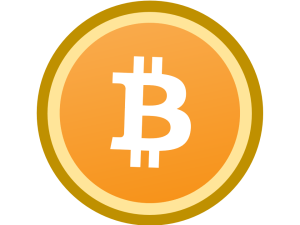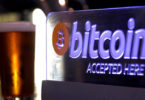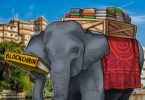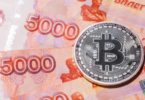Last December, Nilam Doctor, an IT professional from Ahmedabad, was surfing the web when he came across the digital currency, bitcoin. Intrigued, Doctor researched the open source currency for a week and then sold some gold he had invested in to buy bitcoins (BTC) that then cost Rs2,500 each.
A few months previously, Bangalore-based IT professional Benson Samuel realised that bitcoins were a digital currency similar to something he had read about in a white paper several years ago. He wanted to invest in BTC too. Unlike Doctor, he chose to mine them.
Samuel and Doctor are just two of what is believed to be a 5000-strong bitcoin investor group in India.
Global growth
Since its inception in 2009 (see box on left), economists and market analysts have dismissed the bitcoins. The words used to describe it include: bubble, illegitimate and unviable. Other skeptics said it won’t work because merchants wouldn’t accept it while others took digs at the anonymity of bitcoin owners and the possibility that it will be used for illegal transactions.
But optimists believe the bitcoin is the most provocative thing to happen to modern finance since the Euro. These supporters — venture capitalists, programmers, libertarians and ‘anti-establishment’ thinkers — have pooled their resources to market the currency, standardise it, make it scalable and build supportive infrastructure like bitcoin exchanges and so on. The community of such bitcoin investors is growing in India too.
Ask Bangalore-based bitcoin and finance enthusiast Sunny, about the composition of bitcoin supporters in India and his answer reflects a global trend. “Gold bugs, libertarians, crypto-anarchists, techies, entrepreneurs, stock exchange traders and open source advocates.”
Many bitcoin investors are also its evangelists. In Bangalore, Sunny runs a meet up group of bitcoin enthusiasts. The group meets every Sunday to discuss the currency. It has over 70 members and is growing. A chapter has also opened in Ahmedabad.
indiabitcoin.com and unoco.in are sites Sunny has created to serve as a hub to promote the currency and to enable people to make make purchases using bitcoins online. Doctor, 52, has started a website rbitco.in that allows users to buy bitcoin merchandise too.
Samuel, meanwhile, consults companies and educates them on how they can incorporate bitcoins into their business.
Serious enthusiasts like Samuel and Doctor are members of the Bitcoin Foundation (bitcoin.org) that standardises, protects and promotes the use of the currency worldwide.
Risky but rewarding
What is it about the bitcoin that appeals to these investors despite the risks involved?
Sunny says he finds the libertarian principles and the open source nature applied to finance very intriguing. “I like the fact there’s a global community of users, developers, philosophers who support the movement. The currency has made money simple, transparent and collaborative. It’s not a company, it is not a government, it’s simply a protocol (code). For the first time in history, anyone with internet access has the ability to send as little or as much value (money) from any point on earth to any other point, in an instant… for free,” he says.
Samuel also says he likes the fact that the isn’t in control of one body or government. “It cannot be manipulated, inflated or deflated artificially by political parties or authorities since they don’t issue the currency.”
Besides reasons like liberty and transparency, bitcoin investors are also drawn in because of rewards. Investors who bought or mined bitcoins much before it gained global popularity have gained exponentially. Doctor has made a profit of 300% on his investment thus far. Samuel, who mined bitcoins using his resources (electricity etc), admits he has made a profit though he isn’t willing to reveal how much.
But there are also risks. Doctor uses a stock market analogy to explain it. “Like in the stock market, prices are controlled by sentiments. If you are a daily trader, you have to be very careful. But if you’re in it for the long run, it’s a good investment. Even if you buy bitcoins today at $140 and hold on to it for a long time, its price will double every year.”
Be cautious
Samuel is upbeat about its prospects since investors are building the infrastructure to support it. But he has a word of caution: “Many people have taken sudden decisions that have resulted in losses. I mined coins and am holding on to them but I also have the liquid to move on to the next big thing if bitcoins don’t do too well. Not too many people may have that luxury.”
Bitcoins and groceries?
One of the biggest criticisms against the bitcoin is that it can be used for drug trafficking, money laundering, tax frauds and other illegal activity. This is because the purchase of bitcoins and products using bitcoins is done entirely online and there are enough tools available to help users hide their locations.
But if the government decides bitcons are a bad thing, it cannot exactly make it illegal, say investors.
“The only way to take it down or ban it completely is to take down the internet. This isn’t possible and obviously makes governments wary,” says Sam (name changed), a Bangalore-based bitcoin investor.
“They can say it’s illegal tomorrow, but then they will have to monitor a combination of 34 alphabets going from one computer to another,” says Samuel. That is somewhat impossible.
Doctor says the Indian government is aware of bitcoins and its growing popularity and may soon follow the US to frame laws to govern virtual currencies. He is also in favour of creating a way to identify the owner of a bitcoin and is currently working on a project that could make this possible. He believes the government will take more interest in the currency once it is able to track its owners.
So, 20 years down the line, will we see people using bitcoins to buy groceries?
Unlikely, says Samuel, adding that bitcoins may never become a mass currency.
“Globally, there are 1 million people in the BTC economy who hold an average of 12 BTC each (about 12 million bitcoins have already been mined). Till 2040 the number of BTCs cannot exceed 21 million (therefore only 9 million more can be mined in the next 27 years). This essentially means that over 90% of India will never be able to lay their hands on one.”
Bitcoins for dummies
What are bitcoins?
Bitcoin (BTC) is a digital currency first described in a 2008 paper by an anonymous developer(s) who went by the name Satoshi Nakamoto. Bitcoin creation and transfer is not managed by any central authority. Each coin is subdivided to eight decimal places, forming 100 million smaller units called satoshis. Once a person acquires a bitcoin, he or she can trade it online to anyone who will accept it as payment for goods or services. Bitcoins can be transferred through a computer or smartphone without an intermediate financial institution.
How do you mine them?
Anyone can install the bitcoin mining software, which uses the computer’s processing power to carry out intensive calculations. Lots of computers at a given time may be working on the same computational problem. The aim is to find a certain sequence of data, called a mining block. When a computer manages to do that, it wins bitcoins.
Bit like gold
The design of bitcoins is a lot like gold or any other natural resource. When it started out, it was relatively easy to mine bitcoins. But as more people try to mine, the computation becomes harder and more challenging and the returns (number of bitcoins found) lower.
The creator has written the program in a way that it puts a cap on the number of bitcoins that can be mined. The number of new bitcoins that can be mined is halved every four years until the year 2140, when this number will come to zero. Currently, there are a little over 11 mn bitcoins in circulation and only 21 mn can be mined till 2040.
How can you buy them?
Bitcoins can be bought using regular currency at exchanges. It’s best to stick to Mt.Gox, the biggest exchange that handles around 80 percent of Bitcoin trade. Other exchanges may not be trustworthy — their systems are easier to hack and can shut down with the money of the investors.
Is a PC enough to mine?
Theoretically any computer can be used to mine. But if you didn’t get into bitcoin mining at the beginning, it’s unlikely you will be able to mine any now with a PC as the energy costs will be too high. Since the computational problem gets more difficult to crack as more people (computers) try to mine bitcoins it can now take years to generate any coins using a regular PC. There are plenty of IT companies willing to sell expensive equipment dedicated to mining but if you must mine then joining a mining pool, where you can split any wins between the group.
Source : http://www.dnaindia.com/lifestyle/report-bitcoin-mine-or-minefield-1836651
Click on the bitcoin logo below to buy, use or accept bitcoin. Unocoin is India’s most popular bitcoin wallet.
To read the bitcoin white paper, visit: https://bitcoin.org/bitcoin.pdf








